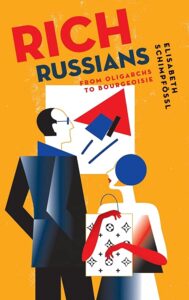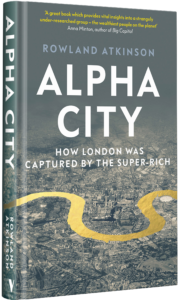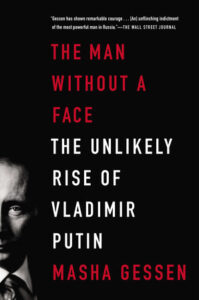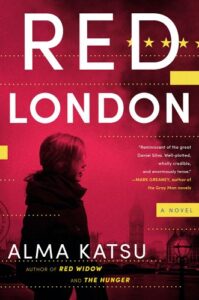My new novel, Red London, revolves around the world of Russian oligarchs living in London. Wealthy Russian expats have been a fixture in London for so long now that the city’s moniker, Londongrad, no longer shocks. The oligarchs are dug in deeply and broadly: Russians are believed to have 27 billion pounds invested in the UK in one form or another, and the top few alone own about $1.5 billion in London property.
When Putin launched a full-scale invasion into Ukraine on February 24, 2022, however, it forced a hard look at the ultimate price of this accommodation of Russian elites.
Wealthy people have always bought property in foreign locations, whether as an investment or for pleasure and leisure: nothing new there. But the calculus changed in the UK when in 1994, then-Prime Minister John Major introduced a new visa category for individuals who invested at least 750,000 pounds in the British economy. It just so happened to occur at the same time things were imploding in the former Soviet Union, as individuals took advantage of the fall of the Communist state to loot state resources wholesale, and a cohort of new millionaires was being created overnight.
Major’s “golden visas” were a known security risk, but it brought a lot of money into the UK at a time when it was desperately needed. The UK was in a severe and protracted recession at the time. This casual attitude toward questionable Russian (and let’s be fair, not just Russian) money was recognized at the time for what it was, a Faustian bargain, but British authorities managed to evade dealing with it until February 2022 when it decided it could hold its nose no longer.
One of the first thing the international community did in response to the invasion was to impose sanctions and other financial and economic restrictions to limit the flow of money to fund Putin’s war. That includes freezing the assets or otherwise blocking financial activity of some of Putin’s inner circle, the elites known as oligarchs. Their assets, including real estate, have been seized or frozen. Their yachts—perhaps the most ostentatious display of their wealth—have been tracked around the world by amateur sleuths and seized by authorities. As of January 1, 2023, $95 billion in assets have been frozen under sanctions against two dozen of the richest Russian oligarchs. In total, sanctions have been imposed on nearly 1300 people in the UK alone, and that list includes wives and children (to lessen the risk of capital flight).
In my spy thriller Red London, I show how hard it is to isolate the oligarchs. Mikhail Rotenberg is one of the wealthiest and a known crony of Putin—only Putin has mysteriously disappeared and a new man, Viktor Kosygin, has taken his place. Rotenberg has had ten years to dig into his new country. He’s invested in British companies, sits on boards, makes large charitable donations—and has married a British aristocrat, Emily Hughes. He’s done everything he can to make himself bullet-proof. The British government suspects Kosygin is up to no good and has plans that may make us long for the days of Putin. It wants to keep Rotenberg’s billions from falling into the new Russian president’s hands.
MI6 is tasked with cozying up to Rotenberg’s wife Emily, to see if she’ll do her patriotic duty and tell the authorities where her husband has hidden his money. Like any smart billionaire, he’s stashed it in offshore accounts. In order to do this, however, MI6 turns to CIA to get someone in close to Emily: expert recruiter Lyndsey Duncan, who is stationed in London in order to run her new asset, a Russian double agent. The assignment becomes a race against the clock: will Lyndsey be able to flip Emily before Viktor Kosygin can launch his master plan against the West?
And we find out if money really can make you bullet-proof. In the literal sense.
If you want to learn more about the creation of Londongrad and the Russian oligarchs, I recommend the following books:

RICH RUSSIANS: From Oligarchs to Bourgeoisie, Elisabeth Schimpflossl (Oxford University Press)
Being a former CIA analyst and researcher at a think tank, I gravitated toward this scholarly book by a university lecturer in sociology and policy. Schimpfossl conducted over 80 interviews with members of this socioeconomic class to give a detailed look at not only their circumstances but also the mindset and personal philosophies that enabled them to succeed. Rich Russians provided all the nuance I needed to create a believable and credible oligarch character, the banking tycoon and morally compromised Mikhail Rotenberg.

ALPHA CITY, Rowland Atkinson (Verso)
This well-researched book helped me to understand how the “plutocratic colonization” of the capitol of one of the world’s most important countries could happen. While the book dwells quite a bit on the social impacts—forcing the working class and now even the middle class out of the city in order to accommodate the rich—it also provided the political and historical context necessary to understand how a country (and a close American ally) could come to depend so heavily on foreign money.

BUTLER TO THE WORLD, Oliver Bullough (Macmillan)
Because this book came out in 2022, after Red London was ready to go to press, I didn’t use this book in my research but from everything I’d read about it, I wish I could have. This book, named by both the NY Times and The Economist as a best book of 2022, looks squarely at the role of Britain in the off-shore economy, facilitating money-laundering and the hiding of funds for thieving billionaires, worldwide. You can subscribe to a newsletter from Bullough following how “the super rich are changing the world.”

NOTHING IS TRUE AND EVERYTHING IS POSSIBLE, Peter Pomerantsev (Public Affairs)
For anyone who has a hard time wrapping his head around the Russian mindset and experience, this somewhat dated (2014) book is a perfect introduction. Propaganda is at the heart of the Russian experience, and the author, a former producer of Russian reality shows, is the perfect guide to show you the singular madness of modern-day Russia.

THE MAN WITHOUT A FACE, Masha Gessen (Riverhead)
You can’t understand modern Russia without understanding Vladimir Putin, the former KGB officer who has spent the past nearly 25 years molding the country and its people to his will. This book, also somewhat dated (2012) by National Book Award-winning author Gessen, was widely praised for its coverage of Putin’s rise to power and analysis of his tactics.
***





















